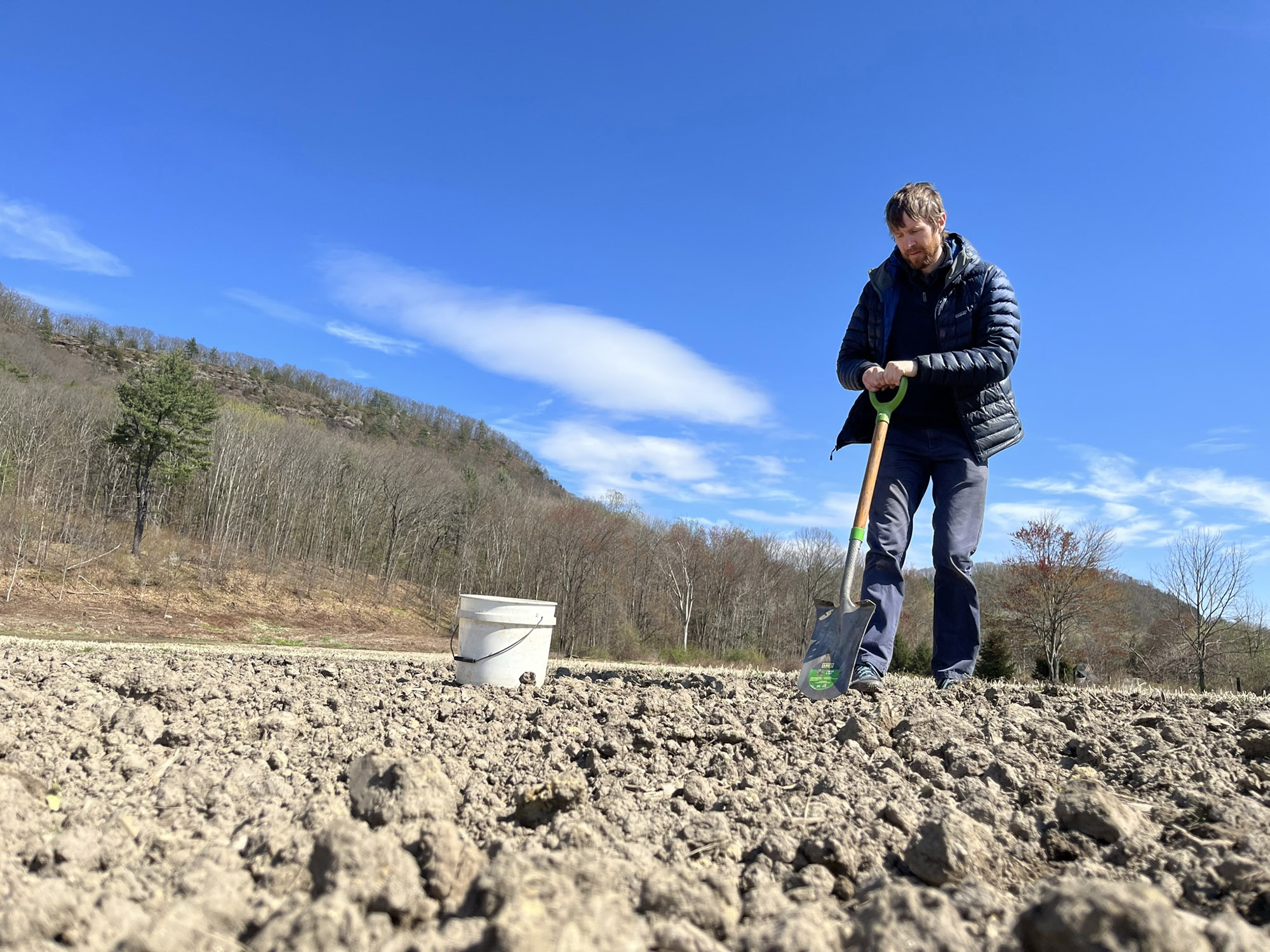
The Deerfield Healthy Soils Project
Last year we had the pleasure of partnering with Chris Curtis of Conservation Works on a Healthy Soils Project for the Town of Deerfield, MA. This project, which recently received the Sustainability & Resiliency Award from the MA Chapter of The American Planning Association, was a great opportunity to apply the work of the Massachusetts Healthy Soils Action Plan at a Town level.
Our goals were to:
- establish a baseline estimation of current soil health throughout Deerfield;
- understand the effects of land cover and management on soil health; and
- make recommendations for Deerfield related to natural resources, 2030 climate goals, funding, and mandated planning processes
The project kicked off with an analysis of existing soil function and characteristics. Using soil organic carbon and landcover data, we predicted where soils likely have a high degree of health, where they are likely degraded, and where they have the highest potential for regeneration.
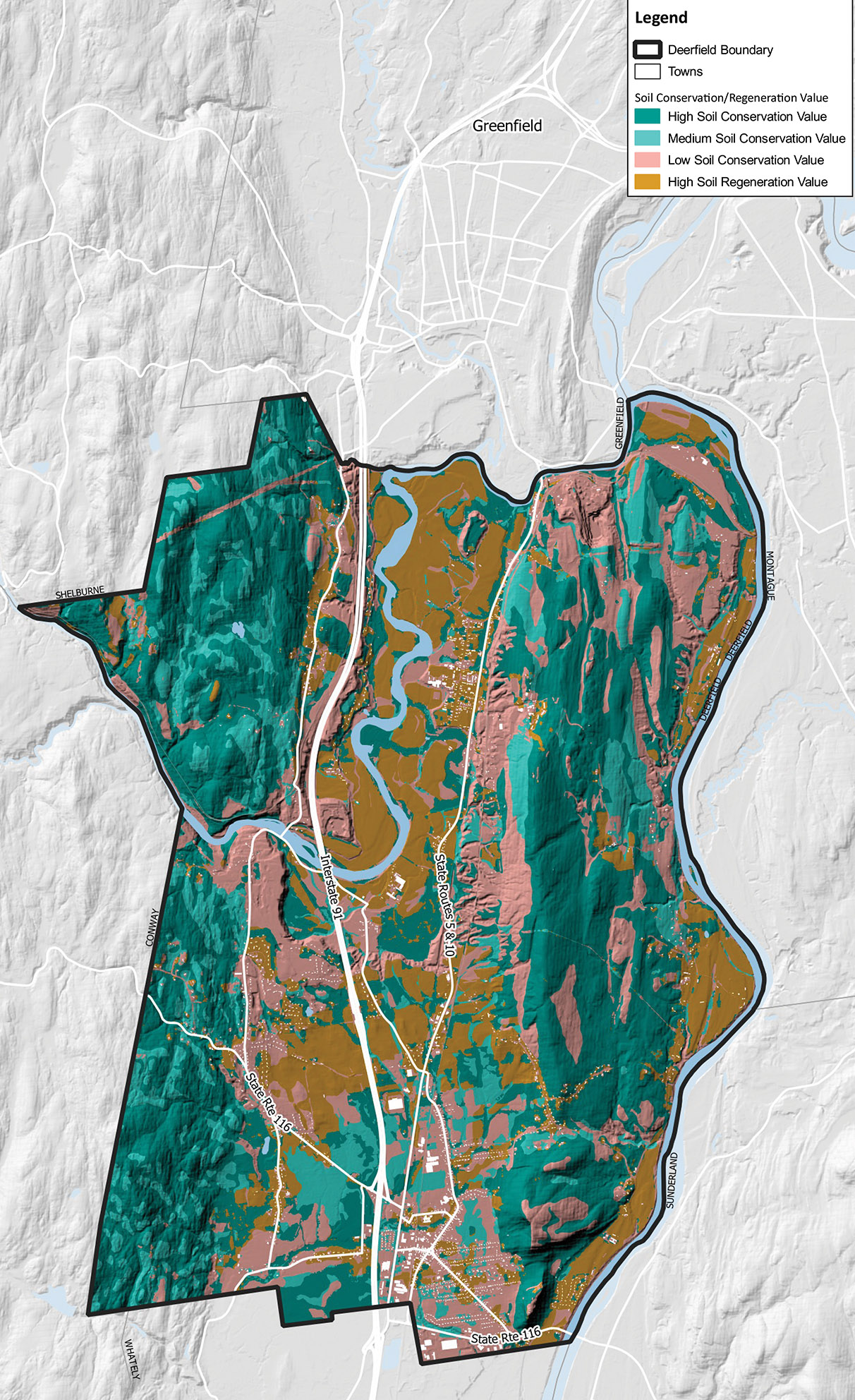
Our final report drew on these broad patterns to recommend specific actions for Deerfield within four categories:
- Increased protection and climate-forward management of wetlands and forests
- Better soil management on farms and gardens
- Management of turf and lawns for soil health
- Soil-smart construction and development patterns & practices
The final report contains model bylaws to protect and enhance soil resources, including a bylaw to protect significant trees, post construction soil performance standards, and a forest protection overlay district.
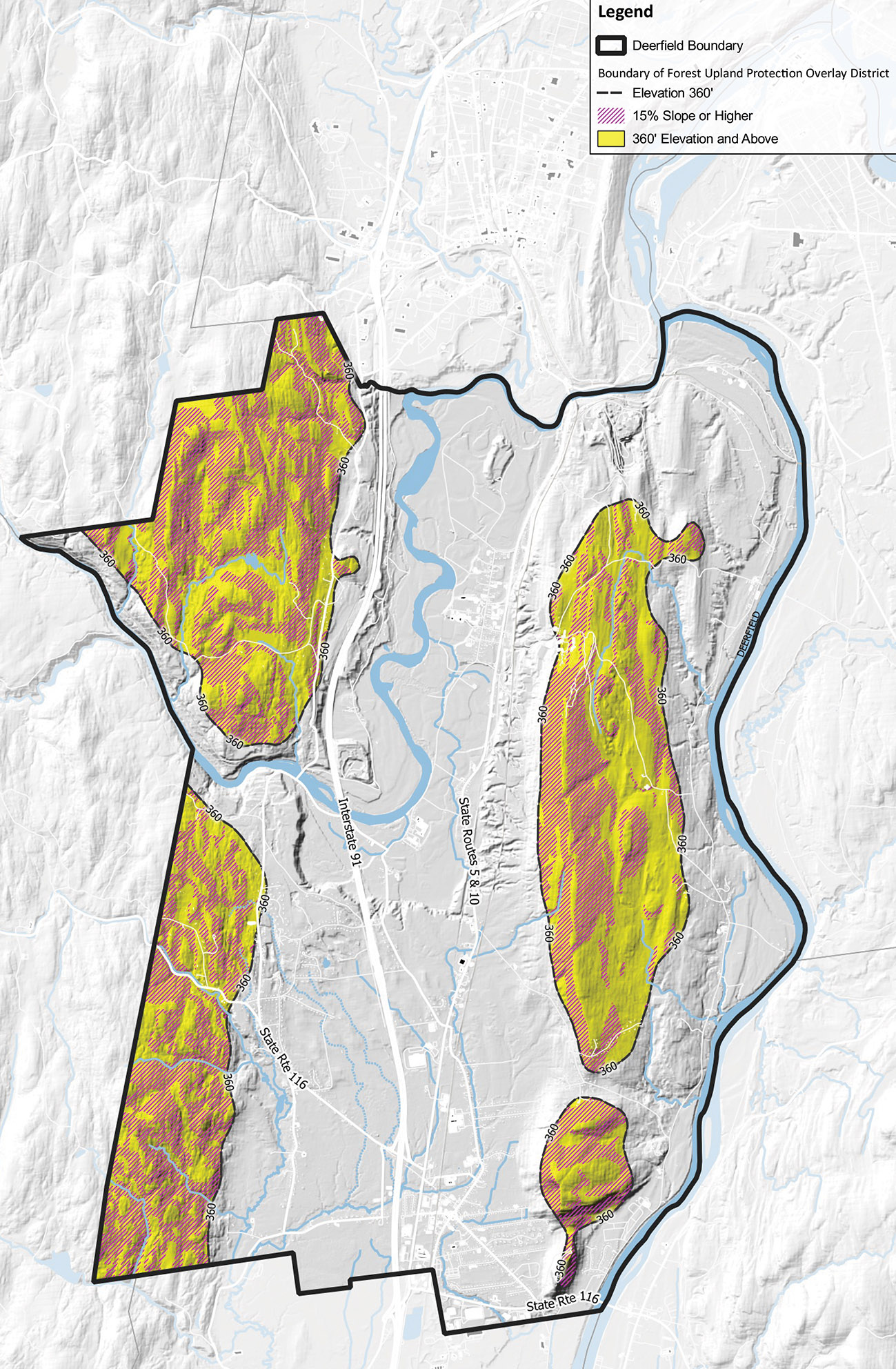
ground Truthing
Soil sampling allowed us to see how our soil health predictions measured up to reality. We collected samples at sites across Deerfield that had different land use and management histories, and submitted them to Cornell for testing.
A particularly interesting site near the Bement School offered a turf playing field, a conventional agricultural field, and an undisturbed shrubland in close proximity all on the same soil type. This allowed for an ideal comparison of how different management practices affect soil health over time. The findings confirmed our expectation that greatest soil health would be found in forested or shrubland conditions, followed by turf and high-till cropland. Put another way, along a spectrum of intensity and frequency of disturbance.
Field based investigations also showed better soil structure and biological activity in lower disturbance sites. These results show that actions that support farmers and other land managers to adopt soil smart practices could have a significant positive impact on soil carbon levels, water infiltration and storages, and nutrient availability.
A Community Effort
An essential part of this project was to raise awareness about the role soils play in ecosystem health. Our team collaborated with the town’s Climate Change and Energy Committee to present at the Frontier Regional Climate Change Forum; interviewed Deerfield farmers about current soil practices; and held a soil health field day with high school students.
At the field day, students were led through hands-on activities assessing soil health at four sites near the school. These sites illustrated a variety of land management including highly managed lawn, conventional cropland, and wet shrubland.
This project and its approaches to soil assessment, sampling, outreach, model bylaws, and student engagement are all replicable in a variety of situations. We hope this project inspires healthy soils efforts in other municipalities of Massachusetts and beyond.
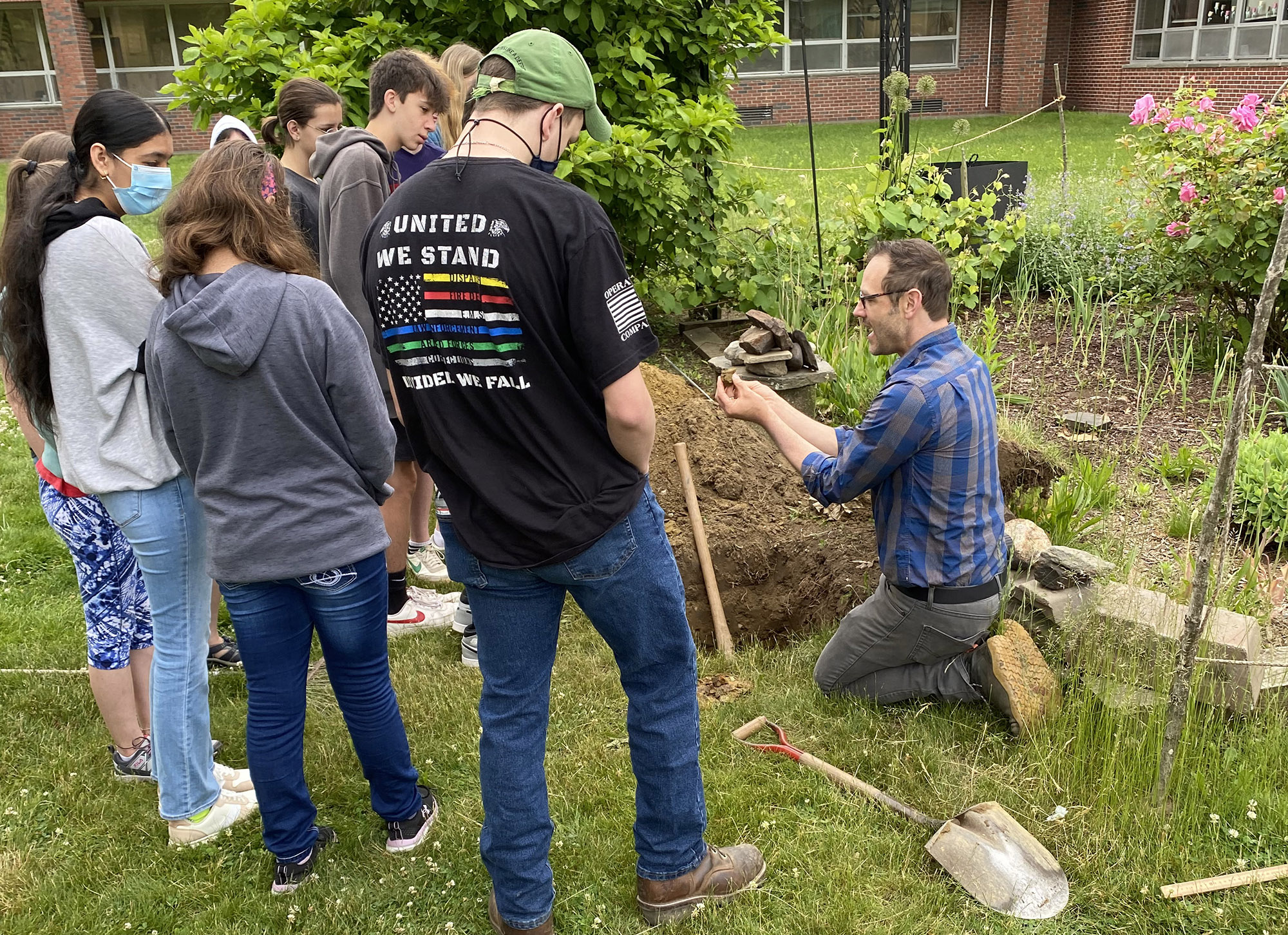

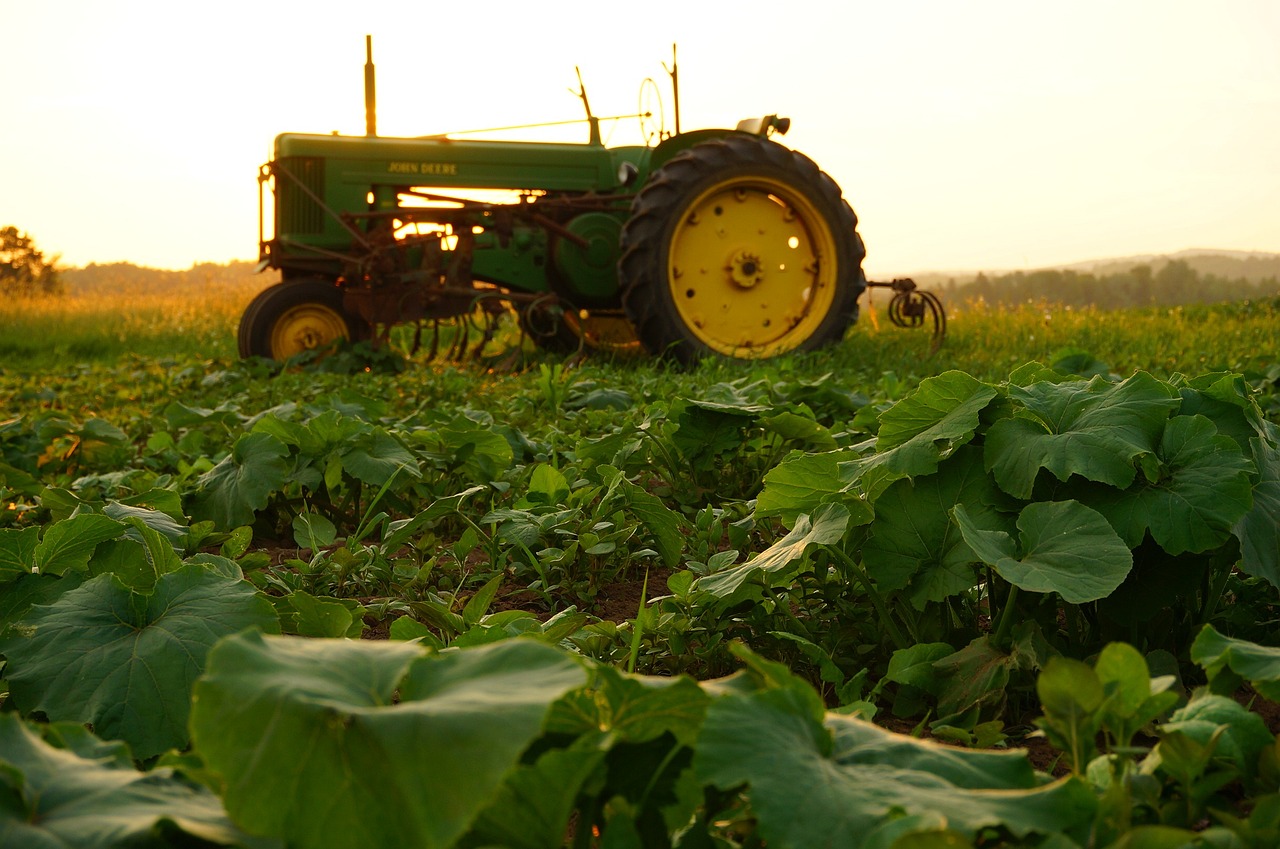

Comments (0)